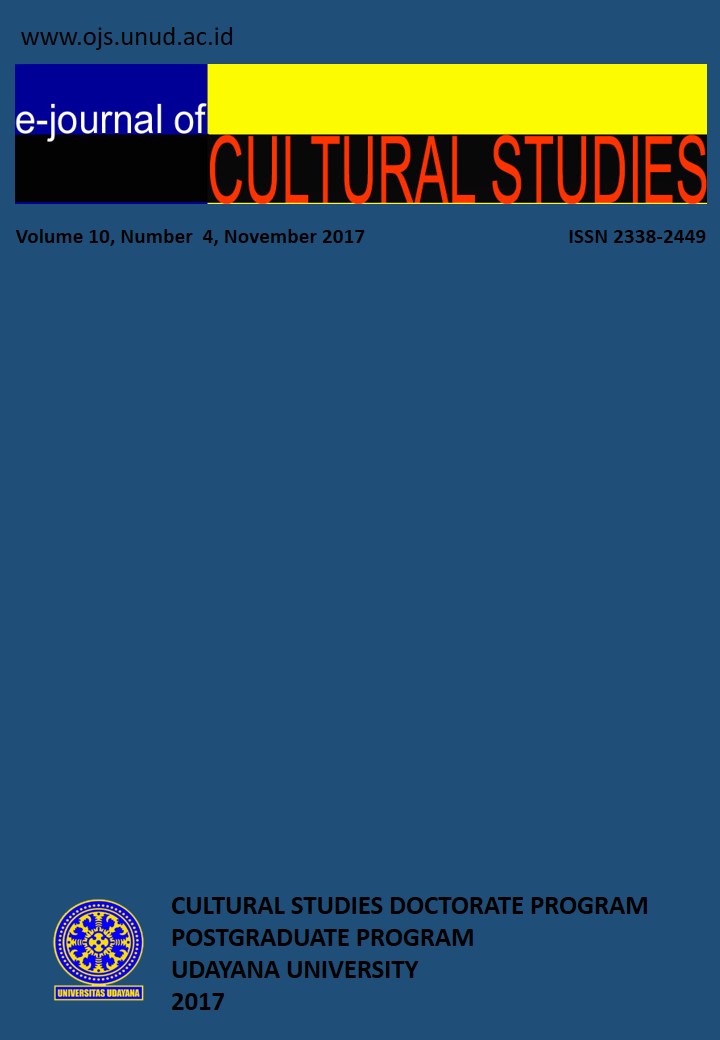KARANG MEMADU: AN ANTIPOLYGAMY VILLAGE CALLED PENGLIPURAN
Abstract
Modernization illustrates that traditional life does not provide enough roles and opportunities for women. Tradition is often interpreted as a restraint and persecution of women. It is no exaggeration to say that in traditional and modern life, polygamy is a legit and approved act. Polygamy is detrimental to women, making them suffer and helpless. However, in traditional village of Penglipuran, Bangli regency, Bali, polygamy is prohibited. Men who violate customary rules as outlined in the awig-awig of the village should be sentenced. This study aims to provide a basic and simple description of Karang Memadu, a unique tradition of Penglipuran. The purpose of this research is assisted by using library study method, interview with informants and the community of Penglipuran Village, as well as observation and capturing the life of the community by photographic equipment.
The local wisdom of Karang Memadu in traditional village Penglipuan is an effort to protect women from polygamy. Customary sanctions must be acknowledged: prohibited from entering the temple area, prohibited from passing the village road up to disgrace of being isolated are effectively make the couple of polygamy can not be encountered in the village Penglipuran. Although this awig-awig is in contrast to Law No. 1 of article 3 verse 2 of 1974 on the legitimacy of polygamy, the terms are in accordance with article 5 stated polygamy may be ratified if there is a consent from the previous wife. This is the essence of Karang Memadu, no women are men’s second wive. Thus, it would have a greater value if Karang Memadu should not only be taken part as oral customary rules but also considered as as written one.







